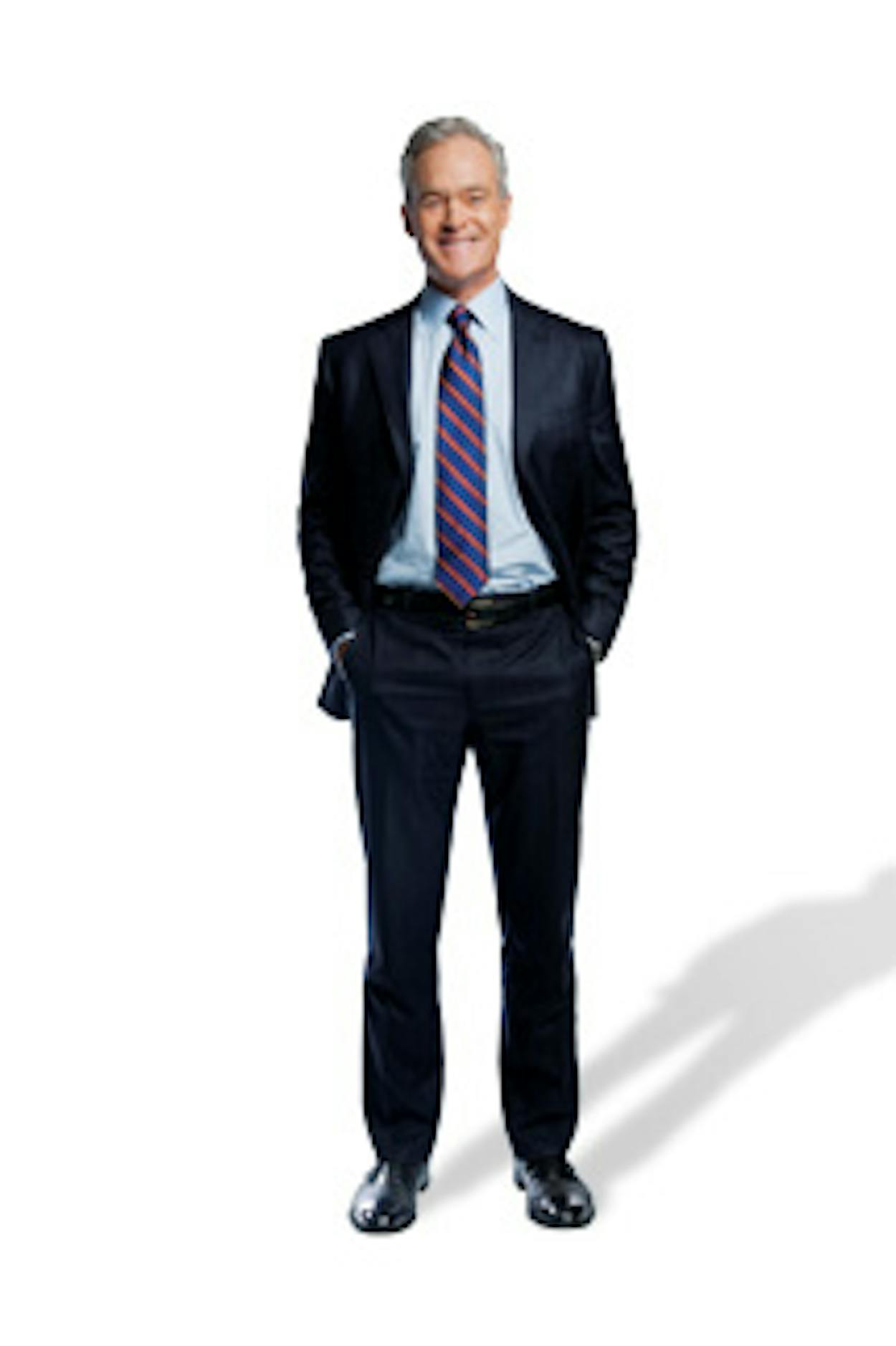NAME: Scott Pelley | AGE: 54 | HOMETOWN: Lubbock | QUALIFICATIONS: Joined CBS News as a reporter in 1989 / Became a correspondent for 60 Minutes in 2004 / Named anchor and managing editor of the Evening News in May / Has won fourteen national Emmys and five Edward R. Murrow awards
● My career in pursuit of the truth began with a lie. I became a copyboy at the Lubbock Avalanche-Journal when I was fifteen, but they only hired kids who were sixteen. I took care of that problem and informed them that I was indeed sixteen. I got out of Coronado High School at two-thirty in the afternoon, and my mother drove me to the paper. She dropped me off two blocks away so nobody could see I wasn’t driving.
● While I was a student at Texas Tech, I went to work at Channel 28, which was literally in the middle of a cotton field. I produced the ten o’clock news, I shot all the film of the news, and I did radio on the weekends.
● I have been a reporter for a very long time, but I’ve never anchored a news program. So we’re still in the anchorman training phase. I am learning things every day, and to borrow a phrase from horseback riding, I’m starting to find my seat.
● The most important thing is for the audience to say at the end of the broadcast, “You know what, that was worth my time. I learned things, and I’m going to come back for more tomorrow.”
● In a sense, the anchor portion of my job is the least important thing I do. This is a thirteen-hour day. I come in the door at 8:45 in the morning, and my senior staff is already here. We all get together and start talking about what we’re going to cover, how we’re going to cover it, and who we’re going to assign it to. I have discovered that if you get the first twelve and a half hours of the day right, then the last half hour tends to work out pretty well.
● Every single script at the Evening News passes through my hands. We used to say at 60 Minutes, “There’s no such thing as good writing. There’s only good rewriting.”
● At 60 Minutes, we work on stories and work on them and then work on them some more. We don’t put them on the air until they’re ready. At the Evening News, however, six-thirty seems to come around pretty regularly.
● I cannot tell you how important Walter Cronkite’s legacy is to all of us here at CBS News. He walks these halls. We talk about him every day. We ask the question “What would Walter do?”
● When I travel around the country, people tell me that they are tired of the shouting on television, the veiled opinions that pass for news on the cable channels, and all the sketchy information on the Internet. They are looking for a brand that tells the news, tells it straight, and takes the audience seriously. I think that’s lacking in the marketplace, and it’s a great opportunity for us.
● Being an anchor is a humbling experience. You feel a little bit small in that chair.







